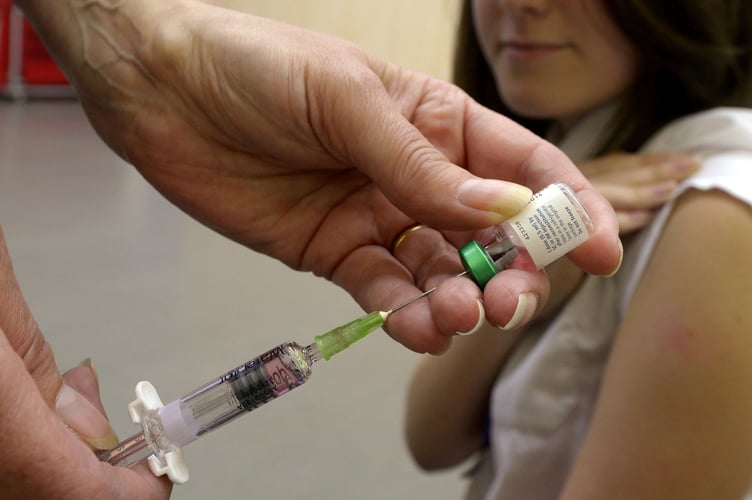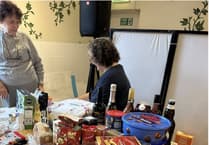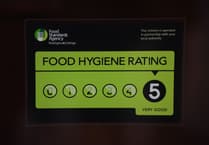Uptake of the childhood vaccine protecting against whooping cough in Bath and North East Somerset has fallen following the Covid pandemic, figures show – as cases of the serious infection rise across the country.
The growth of 'vaccine hesitancy' has led the UK Health Security Agency to launch campaigns aiming to boost uptake as cases of measles and whooping cough are surging across the UK.
As part of our ongoing series looking at how the Covid pandemic has changed society, figures from the UKHSA show 95.7% of two-year-olds in Bath and North East Somerset had the six-in-one vaccine last year.
The jab protects against serious illnesses like polio and whooping cough and is given to babies when they are 8, 12 and 16 weeks old.
The uptake was down from 96.6% in 2019-20, before the pandemic hit.
It comes as whooping cough cases are on the rise, with 553 confirmed in England in January alone. This is compared with 858 cases for the whole of last year.
These recent cases include 22 infants aged under three months.
The UKHSA's new campaign comes after a steady decline over the past decade in uptake of all childhood vaccinations. Last year, uptake of the six-in-one vaccine in England fell to 92.6% compared to 93.8% before the pandemic.
Steve Russell, national director for vaccinations and screening at NHS England, said: "With whooping cough on the rise, it is important that families come forward to get the protection they need.
He added pregnant women or children not up to date with their vaccine should contact their GP to organise an appointment.
Similarly, uptake of the MMR vaccine – which protects against measles, mumps and rubella – has fallen nationally from 86.8% among five-year-olds before the pandemic to 84.5% in 2022-23.
However, in Bath and North East Somerset, uptake of the six-in-one jab increased from 93% in 2019-20 to 93.3% last year.
Measle cases are also on the rise with 730 cases in England since October last year.
The current outbreak was initially in Birmingham and the West Midlands – but cases have now also been identified in the North West, London, East Midlands and Yorkshire and the Humber.
Dr Gayatri Amirthalingam, consultant medical epidemiologist for immunisation at UKHSA, said: "Anyone who is not vaccinated against measles can catch it.
"Being unvaccinated also means you risk spreading the disease to others, including those at greatest risk of becoming seriously ill – like infants, who aren’t able to receive their MMR vaccine until their first birthday, pregnant women and those with a weakened immune system."




.jpeg?width=209&height=140&crop=209:145,smart&quality=75)